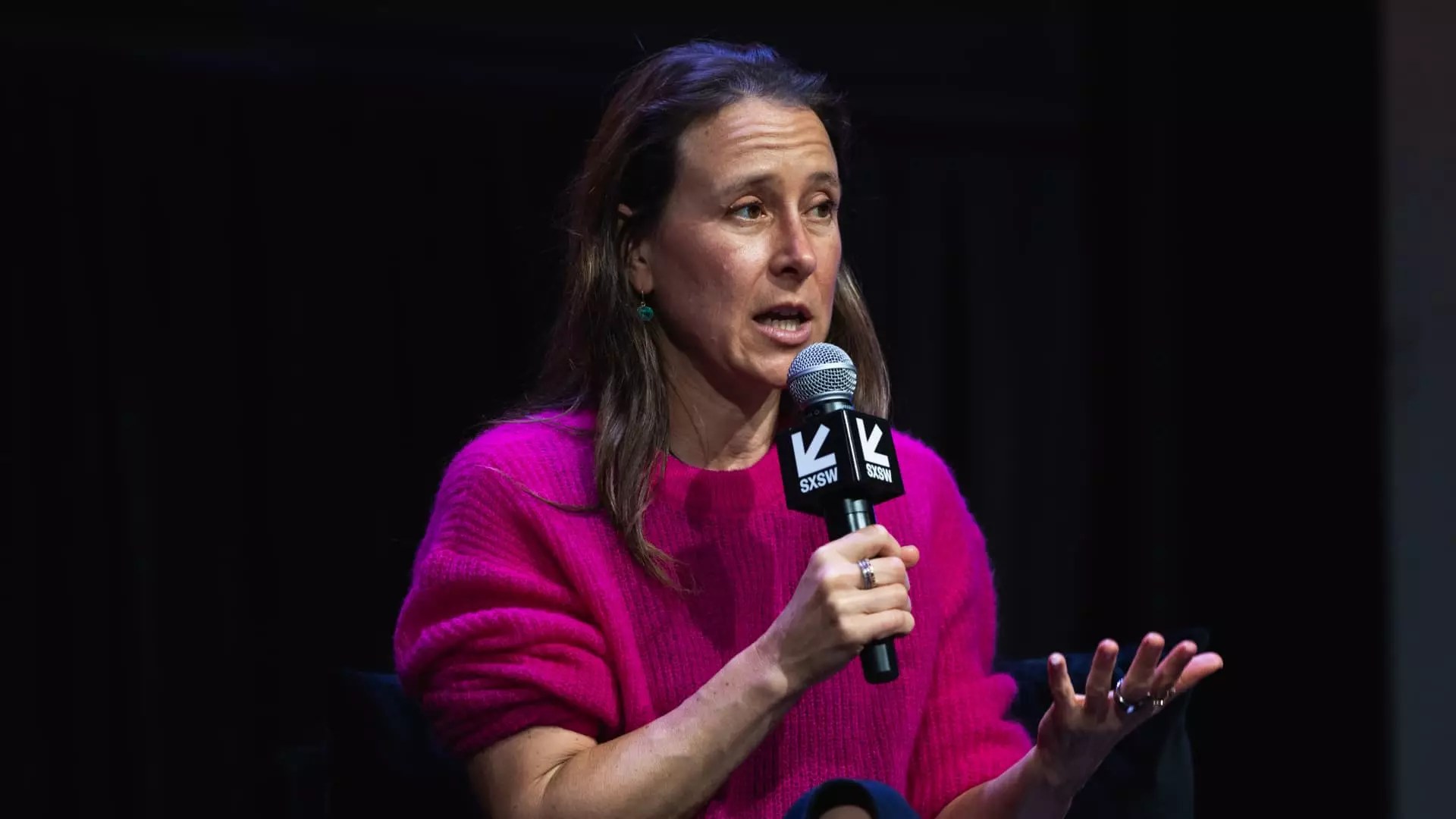The recent filing for Chapter 11 bankruptcy by 23andMe, once a shining beacon in the world of genetic testing, marks a significant turning point not just for the company but also for the industry as a whole. It is hard to fathom how a company that reached a staggering valuation of $6 billion could crumble down to a mere $25 million market capitalization in such a short span. This decline shouldn’t just be an afterthought; it serves as a dire warning for other startups in the biotechnology space that rapid growth doesn’t equate to long-term sustainability.
What stands out the most in this saga is the resignation of CEO Anne Wojcicki. Her immediate departure signals not only a loss of confidence in her ability to steer the company through turbulent waters, but it also raises questions about accountability at the executive level. In a letter posted on social media, Wojcicki admitted taking accountability for the challenges facing the company, yet it feels like a hollow statement following years of mismanagement. A leader’s resignation should signal a new chapter, but it could just as easily be a manifestation of a fragmented vision that plagued the organization from the start.
Financial Mismanagement and Industry Realities
Among the many pressing issues, the financial mismanagement that ultimately led to 23andMe’s downfall cannot be overlooked. The company’s revenue model, once thought bulletproof, faltered as the novelty of home DNA testing waned. With the initial surge of excitement now a distant memory, the company has failed to generate consistent revenue streams in its quest to innovate in research and therapeutics.
Previous efforts to transition from a consumer-focused business to a more research-oriented entity were fraught with missteps. The board even had to form a special committee to evaluate possible paths forward, a clear indicator of a company in distress. Wojcicki’s proposals to take the company private were consistently turned down, indicating a lack of faith not only in her leadership but in the very viability of 23andMe as an independent entity.
As for the company’s financial standing, with liabilities between $100 million and $500 million on the books, it’s baffling that investors were still clinging to a ghost of a once-thriving company. This is a clear manifestation of how rapidly fortunes can shift in the tech sector, often leaving behind traditional measures of financial health and stability.
The Privacy Crisis Compounding Financial Troubles
While 23andMe’s financial tribulations warrant significant attention, the reality is that privacy issues have compounded these challenges tenfold. The infamous hack that compromised the data of nearly 7 million users has undoubtedly triggered a massive trust deficit among consumers. With so much personal information at stake, it’s no wonder that California Attorney General Rob Bonta is now urging residents to reconsider their relationship with the brand.
The irony is palpable: a company built on the premise of providing genetic insights has now become a symbol of data insecurity. Wojcicki’s promises of advocating for customer choice and data transparency feel disingenuous when you consider that her company’s infrastructure has already failed to protect the very data it sought to monetize.
As the events unfold, it’s crucial to ask the fundamental question: What does this mean for consumer trust in the biotech sector? If a pioneer like 23andMe can stumble so dramatically, what does that say for newer startups venturing into similar territory? The landscape is littered with examples of data breaches, and the consequences are increasingly severe.
Looking Ahead: The Future for 23andMe and Beyond
As the company navigates its Chapter 11 proceedings, the potential existence of an independent bidder—Wojcicki herself—raises eyebrows and alarms. Is it possible for someone so intertwined with the company’s failures to lead a successful turnaround? One must wonder whether she could truly disentangle herself from the numerous mistakes made under her leadership.
Moreover, if 23andMe intends to actively solicit bids over the next 45 days, potential buyers will have to weigh not only the company’s assets but also its tarnished reputation and the looming data privacy issues. The fallout from this situation could shape the future of data-driven startups, compelling them to fortify their ethical marketing strategies and data safeguarding measures.
At its core, this story transcends the missteps of a singular company; it becomes a case study of the biotechnology industry’s reckoning with consumer trust, accountability, and fiscal responsibility. It’s imperative that those inspired by 23andMe’s story learn from its mistakes, lest they, too, face the same ignominious fate.


Leave a Reply